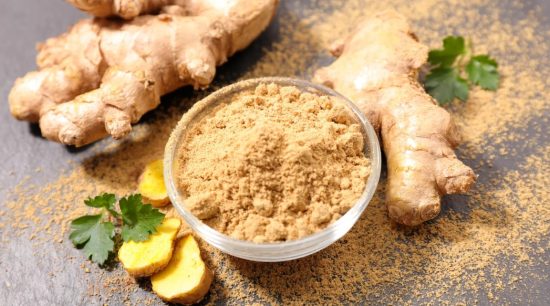Feeling that uncomfortable, nagging pain in your stomach can quickly put a damper on your day. Whether it’s caused by indigestion, gas, or something more serious, all you want is relief – and fast! But what if we told you there are simple remedies that can help soothe your stomach ache in just 5 minutes? Yes, you read that right! In this blog post, we’ll explore various effective ways to alleviate those pesky tummy troubles without having to wait for hours. So get ready to bid farewell to stomach aches and say hello to instant comfort!
The Causes of Stomach Aches

Stomach aches can be caused by a wide range of factors:
- Irritable Bowel Syndrome (IBS)
- Gas and Flatulence
- Food Allergies and Intolerances
- Peptic Ulcers and Gastritis
- Constipation and Diarrhea
- Musculoskeletal Strains
- GERD (Gastroesophageal Reflux Disease)
- Hernias and Pelvic Inflammatory Disease (PID)
- Appendicitis and Cancer
- Pancreatitis and Cholecystitis
- Vascular Complications and Pregnancy
Understanding these underlying causes gives us better insight into how we can effectively alleviate our stomach aches in no time!
How to Get Rid of a Stomach Ache in 5 Minutes?
1. Deep Breaths

Taking deep breaths is a simple yet effective way to alleviate stomach aches in just a few minutes. When we are stressed or anxious, our body’s natural response is shallow and rapid breathing, which can contribute to digestive issues and discomfort. By consciously taking deep breaths, you activate the parasympathetic nervous system, promoting relaxation and reducing tension in the abdominal muscles.
Start by finding a quiet and comfortable space where you can sit or lie down. Close your eyes if it helps you focus. Take a slow inhale through your nose, allowing your belly to expand as you fill your lungs with air. Hold for a moment at the top of the breath before exhaling slowly through your mouth.
As you continue this deep breathing technique, try to let go of any thoughts or worries that may be causing stress. Focus solely on your breath entering and leaving your body. Feel the soothing sensation as each inhalation nourishes your cells, and each exhalation releases any tension or discomfort from within.
2. Probiotics

Probiotics are live bacteria and yeasts that are good for your digestive system. They can help restore the natural balance of bacteria in your gut, which may be disrupted when you have a stomach ache. These beneficial microorganisms can be found in certain foods like yoghurt, kefir, sauerkraut, and kimchi.
When it comes to relieving a stomach ache, probiotics promote healthy digestion and reduce inflammation in the gut. They can also help alleviate symptoms of bloating and gas, which are common causes of discomfort.
To incorporate probiotics into your diet, try consuming foods that contain these beneficial bacteria regularly. You can also opt for probiotic supplements if you prefer a more concentrated form.
3. Try Gentle Movement

When you’re experiencing discomfort in your abdomen, it may seem counterintuitive to move around, but light physical activity can actually help relieve the pain.
Engaging in gentle exercises or movements helps stimulate digestion and bowel movements, which can ease symptoms like bloating, gas, and constipation. It also encourages blood circulation to the abdominal area, promoting healing and reducing inflammation.
You don’t need intense workouts or strenuous activities for this method. Simple stretches, walking around the room, or even light yoga poses can do wonders for your stomach ache. These movements help relax tense muscles in your abdomen and promote healthy digestion.
4. Apple Cider Vinegar

Apple cider vinegar has gained quite a reputation for its potential health benefits, including soothing stomach aches. This golden elixir is known for its acidic properties, which can help to neutralize the excess acid in your stomach that may be causing discomfort. But how exactly does apple cider vinegar work to alleviate a stomach ache?
It’s important to note that not all stomach aches are caused by excess acid. However, if you suspect that your stomach ache is due to an imbalance of acidity, apple cider vinegar might just do the trick.
When consumed in small amounts diluted with water, apple cider vinegar can help regulate your digestive system’s pH levels. It stimulates the production of enzymes and digestive juices that aid in breaking down food more efficiently.
To use apple cider vinegar for quick relief from a stomach ache, mix one tablespoon of raw and unfiltered apple cider vinegar with eight ounces (about 240 ml) of warm water. Sip on this mixture slowly until you start feeling some relief.
5. Seltzer and Lime

Seltzer water and lime may not be the first thing that comes to mind when you think of remedies for a stomach ache, but this simple combination can actually work wonders. Seltzer water’s fizziness helps relieve gas and bloating, while the refreshing taste of lime can help soothe an upset stomach.
When you have a stomach ache, sometimes all you need is something light and refreshing to ease the discomfort. Seltzer water provides just that – it’s like drinking a bubbly breath of fresh air for your digestive system. And when you add a squeeze of lime juice, it adds a burst of citrusy flavour that can help calm any nausea or queasiness.
To use seltzer water and lime as a remedy for your stomach ache, pour yourself a glass of chilled seltzer water and squeeze in some fresh lime juice. You can also add some ice if you prefer it to be extra cold. Take small sips slowly and allow the fizzy bubbles to do their magic on your tummy.
6. Peppermint

Peppermint has long been known for its soothing properties when it comes to gastrointestinal issues. It contains menthol, which helps relax the muscles in the digestive tract and can ease stomach cramps and spasms.
One way to use peppermint for a stomach ache is by drinking peppermint tea. Steep a peppermint tea bag in hot water for a few minutes, then sip on the warm beverage. The aroma alone can have a calming effect on your stomach while the compounds in the tea work their magic.
Another option is to use peppermint essential oil topically. Dilute a few drops of peppermint oil with a carrier oil such as coconut or almond oil, then gently massage it onto your abdomen. The cooling sensation of the minty oil can provide quick relief from discomfort.
If you prefer not to apply it directly to your skin, you can also inhale the scent of peppermint oil by adding a few drops to a diffuser or simply holding an open bottle under your nose.
7. Water

Drinking water can help alleviate various digestive issues and provide relief for your upset stomach. Staying hydrated is important for maintaining overall health, but it can also have specific benefits when it comes to soothing a stomach ache.
Water helps to flush out toxins and aids in digestion by keeping everything flowing smoothly. It can also help dilute any excess acid in your stomach that may be causing discomfort.
In addition to drinking plain water, you can try infused waters with added ingredients like lemon or cucumber slices for extra flavour and potential digestive benefits. Sipping on warm or room-temperature water may also help relax your muscles and soothe an irritated stomach.
8. Ginger

Ginger, a popular spice known for its distinct flavour and aroma, has long been used to alleviate various ailments, including stomach aches. Its natural compounds have anti-inflammatory properties that can help soothe the digestive system and relieve discomfort.
One way to consume ginger is by making ginger tea. Grate or slice fresh ginger root and steep it in hot water for about 10 minutes. Sip on this warm and comforting beverage to ease your stomach ache.
Another option is to chew on small pieces of raw ginger. The spicy taste may be intense at first, but it can effectively calm an upset stomach.
If you don’t have fresh ginger on hand, you can also try using ginger capsules or supplements. These are readily available in most health food stores and can provide quick relief.
9. Chamomile Tea

Chamomile tea has been used for centuries as a natural remedy for various ailments, including stomachaches. This soothing herbal tea is known for its calming properties and can help alleviate digestive discomfort.
Chamomile tea works by reducing inflammation in the gastrointestinal tract and relaxing the muscles in the abdomen; it also has antispasmodic properties that can ease cramps and bloating.
To prepare chamomile tea, simply steep a chamomile tea bag or dried flowers in hot water for about 5 minutes. You can add honey or lemon juice to enhance the taste if desired.
Sipping on a warm cup of chamomile tea can provide quick relief from stomach pain and promote relaxation. However, keep in mind that while chamomile tea may help relieve mild stomachaches, it may not be effective for more severe conditions.
10. Avoid Spicy Foods

Spicy foods can irritate your stomach lining and exacerbate any discomfort. So, if you’re experiencing that burning sensation in your abdomen, it’s best to steer clear of anything that might make it worse.
Spicy foods are known for their ability to stimulate acid production in the stomach, which can lead to heartburn and indigestion. They can also cause digestive tract inflammation, making an upset stomach even more uncomfortable.
Instead of reaching for that fiery hot salsa or curry dish, opt for milder options like bland rice or boiled chicken. These gentle foods are easier on the digestive system and won’t aggravate your already sensitive stomach.
It’s important to note that everyone’s tolerance for spicy food varies, so what may be too spicy for one person might have a different effect on another. Pay attention to how your body reacts when you consume spicy foods and adjust accordingly.
11. Increase your Fiber Intake

Fibre plays a crucial role in promoting healthy digestion and can help alleviate various digestive issues. Fiber-rich foods like fruits, vegetables, whole grains, and legumes aid digestion by adding bulk to the stool and preventing constipation.
By including these foods in your diet, you can help regulate bowel movements and reduce the discomfort associated with stomach aches.
Additionally, fibre acts as a natural prebiotic that supports the growth of beneficial bacteria in the gut. These friendly bacteria play an essential role in maintaining optimal gut health and reducing inflammation that can contribute to stomach pain.
Try incorporating more leafy greens like spinach or kale into your meals to increase your fibre intake. Snack on fresh fruits such as berries or oranges throughout the day. Choose whole grain options like brown rice or quinoa instead of refined grains for added fibre content.
12. Try Over-the-counter Medicine

Over-the-counter (OTC) medicines can provide quick relief for a stomach ache. These medications are easily accessible and can help alleviate symptoms in a short amount of time. Several OTC options are available, depending on the cause of your stomach ache.
Antacids are commonly used to treat heartburn or indigestion, which can be a common cause of stomach discomfort. They work by neutralizing excess stomach acid and providing relief from pain.
Another option is anti-diarrheal medication, which can help control diarrhoea that may be causing your stomach ache. These medications slow down the movement of the intestines and reduce bowel movements.
For those experiencing gas or bloating, simethicone-based products can be helpful. Simethicone works by breaking up gas bubbles in the digestive tract, allowing them to be passed more easily.
If you suspect that your stomach ache is caused by menstrual cramps, nonsteroidal anti-inflammatory drugs (NSAIDs) like ibuprofen can provide relief by reducing inflammation and relieving pain.
When to Seek Medical Attention for Stomach Ache?
When it comes to stomach aches, it’s important to know when you should seek medical attention. While most stomach aches can be relieved with simple remedies, there are certain signs that indicate you should consult a healthcare professional.
- Persistent Nausea/Vomiting: Lasting for several days.
- Bloody Stools: Seek immediate medical attention.
- Difficulty Breathing: This could indicate serious underlying issues.
- Abdominal Tenderness: Especially if localized and severe.
- Persistent or Worsening Pain: Despite trying home remedies.
- Signs of Dehydration: Such as dizziness or decreased urine output.
Remember, this information is not meant to diagnose any specific condition but rather provide general guidance on when seeking medical attention becomes necessary for stomach aches.
Preventative Measures for Stomach Aches

Maintaining a healthy lifestyle and adopting certain habits can significantly reduce the risk of experiencing stomach aches. Here are some preventative measures you can take:
- Eat a Balanced Diet: Include plenty of fruits, vegetables, whole grains, lean proteins, and healthy fats in your meals. Avoid excessive consumption of processed foods, sugary drinks, and fatty or fried foods that can irritate the stomach.
- Stay Hydrated: To maintain the healthy operation of your digestive system, make sure you are getting enough water throughout the day. Digestion problems such as constipation can result from dehydration.
- Practice Portion Control: Overeating puts strain on your digestive system, leading to discomfort and bloating. Aim for smaller portion sizes and eat slowly to give your body time to digest properly.
- Maintain Regularity: Establishing regular eating patterns helps regulate digestion. Try to have meals at consistent times each day.
- Manage Stress Levels: High levels of stress can contribute to stomach problems like indigestion or acid reflux.
- Exercise Regularly: Physical activity aids in maintaining proper digestion by stimulating bowel movements and reducing bloating.
- Get Enough Sleep: Getting sufficient sleep allows your body time to rest and repair itself, which is essential for optimal digestive health.
By incorporating these preventative measures into your daily routine, you can promote good gastrointestinal health and reduce the occurrence of stomach aches in the long run.
Conclusion
In conclusion, dealing with a stomach ache can be uncomfortable and sometimes unbearable. However, by following these simple steps, such as drinking water, taking deep breaths, and massaging certain pressure points on your body, you can effectively alleviate the pain in just 5 minutes.
It is important to listen to your body and take preventative measures to avoid future stomach aches. Remember also to consult a doctor if the pain persists or becomes severe. With these quick tips, you can find relief from stomach aches and get back to feeling your best in no time.
FAQs – How to Get Rid of a Stomach Ache in 5 Minutes?
How do you soothe an upset stomach?
To soothe an upset stomach, you can do the following:
- Sip on clear fluids like water or herbal teas.
- Eat bland foods like toast, rice, or bananas.
- Avoid spicy, greasy, or acidic foods that can irritate the stomach.
- Rest and relax to allow your body to heal.
Does paracetamol help stomach pain?
Paracetamol is primarily used to relieve pain and reduce fever. While it may help with general discomfort, it is not specifically targeted at stomach pain. If you have persistent or severe stomach pain, it’s best to consult a healthcare professional for proper diagnosis and treatment.
Why does Coke settle your stomach?
Coke (or other carbonated drinks) may provide temporary relief for an upset stomach due to its effervescent properties. The bubbles can help with bloating and reduce nausea. However, it’s important to note that this remedy may not work for everyone, and it’s advisable to opt for more reliable stomach-soothing methods like herbal teas or antacids.
Should I sit or lay down if my stomach hurts?
The best position to adopt when experiencing stomach pain can vary depending on the cause and individual preference. Some find sitting or propping themselves up with pillows more comfortable, while others prefer lying down in a fetal position. Experiment with different positions to see what provides you the most relief. If the pain persists or worsens, consult a healthcare professional for further evaluation.

